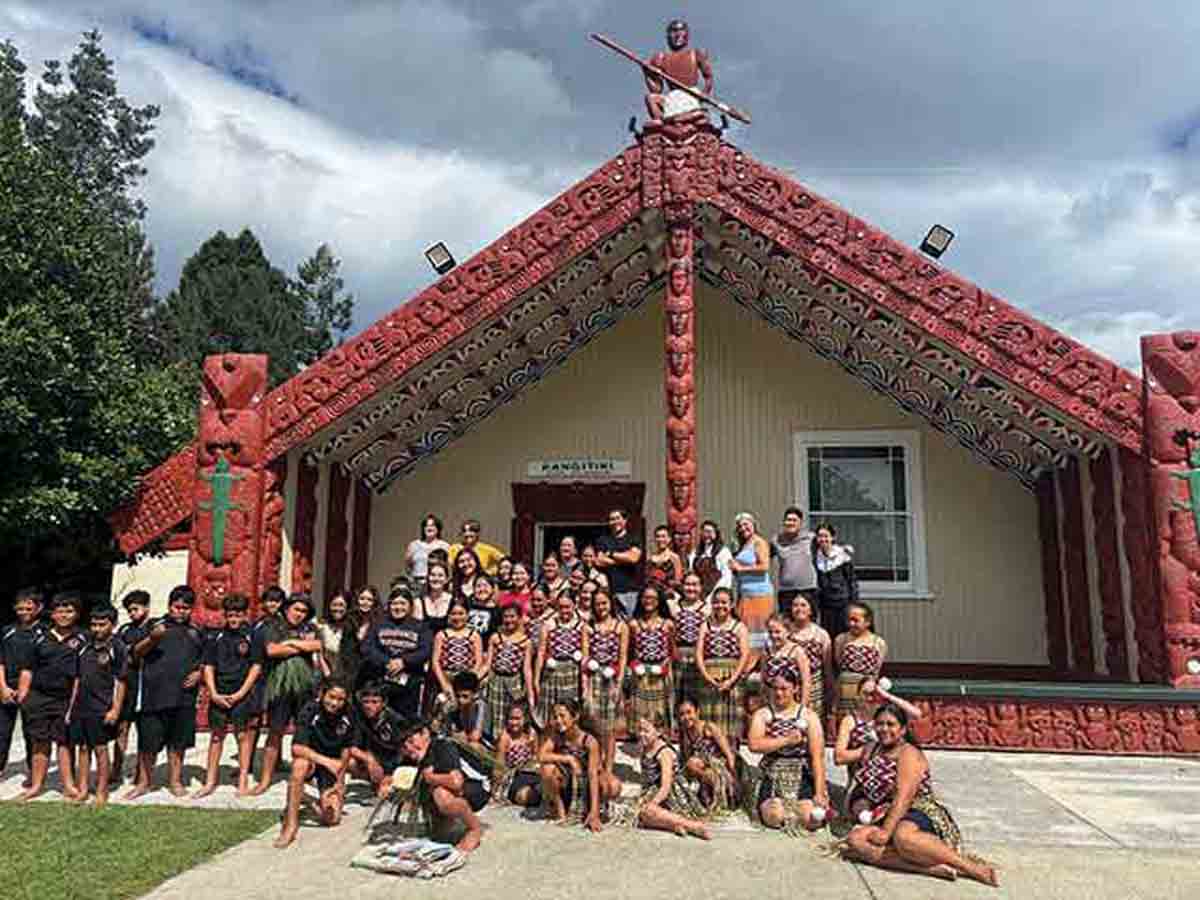
High-Impact Practices experiences can include real-life study abroad trips like CSUCI students (back row) who studied in New Zealand.
By Michael Briley
Goodbye Ivory Tower, hello real world.
CSUCI has been on this trajectory for several years with its emphasis and prioritization
of High-Impact Practices (HIP), a collection of hands-on learning experiences that
data show are transforming students’ lives.
Students have the opportunity to conduct undergraduate research. They gain real-world
work experience with internships in the community. Before they even start their first
Fall semester, they attend the Summer Success Academy, in which they earn credits
and prepare for university life and learning. These are just three among several HIP
student experiences that have been shown to benefit student lives and future careers.
To advance HIP programs and support students, the TOLD Foundation recently established
the TOLD Fund for High Impact Practices at CSUCI. TOLD Foundation is the giving arm
of Camarillo-based commercial real estate developer, TOLD Corporation.
“Our motivation to assist CSUCI comes from many years of admiring the work of the
University and the positive impacts it has made on our community,” said Rod Gilbert,
TOLD Foundation President. “University President Yao made a compelling case for High-Impact
Practices and how the University could better serve its students by unifying those
program areas.”
President Richard Yao says the TOLD grant is a significant milestone in the history
of HIP at the University. “I have so much gratitude for the TOLD Foundation and how
they have embraced the role of High-Impact Practices in improving student success,
closing equity gaps, and integrating our academic programming directly into our community.
Philanthropic support is especially important now as we navigate enrollment and fiscal
realities.”
While all students benefit from HIP, they are especially beneficial for first-generation
college students, those from historically underrepresented and marginalized groups,
and those with the greatest financial need.
The real-life, poignant stories students tell about their HIP experiences are especially
meaningful, reflects President Yao, who has heard many.
“You hear students talk about how they arrived on campus feeling a little bit out
of touch, a little bit disconnected, unsure of their place here. Then they get involved
in a service-learning course or community-based research project and they work with
other students, sharing their vulnerabilities, learning new skills from each other
— and then they get to apply those skills to benefit their community.
“You hear them say they weren’t sure they were going to stick it out until they got
involved in a HIP program. Then they started finding their sense of belonging, gaining
skills and confidence that they can do this.”
